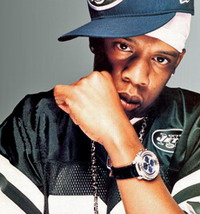US House hearing opposes to using sexist and violent language in hip-hop music
U.S. House of Representatives hearing discussed the need for hip-hop artists to expunge their music of sexist and violent language.

One, Master P, apologized to women for past songs that demeaned them, while another was defiant.
Former gangsta rapper Master P, whose real name is Percy Miller, told a House Energy and Commerce subcommittee hearing that he is now committed to producing clean lyrics. The angry music of his past, he said, came from seeing relatives and friends shot and killed.
But he said now that he does not want his own children to listen to his music, "so if I can do anything to change this, I'm going to take a stand and do that."
"I want to apologize to all the women out there," he said. "I was honestly wrong."
But rapper and record producer Levell Crump, known as David Banner, was defiant as lawmakers pressed him on his use of offensive language. "I'm like Stephen King: horror music is what I do," he said in testimony laced with swear words. King writes horror novels. "Change the situation in my neighborhood and maybe I'll get better," he told one member of Congress.
The two rappers were joined by music industry executives and scholars. They disagreed over who was to blame for sexist and degrading language in hip-hop music but were united in opposing government censorship as a solution.
"If by some stroke of the pen hip-hop was silenced, the issues would still be present in our communities," Crump said. "Drugs, violence, sexism and the criminal element were around long before hip-hop existed."
At the hearing, music videos showing scantily clad women were played; music executives in dark suits testified on the uses of the derogatory words, and black civil rights leaders talked of corporate exploitation.
"From Imus to Industry: The business of stereotypes and degrading images" was the title of the hearing, referring to former radio host Don Imus, who lost his job after making derogatory comments about the Rutgers women's basketball team. The Imus incident has sparked debate within the music industry about black artists using offensive, misogynist and violent language.
"This hearing is not anti-hip-hop. I am a fan of hip-hop," said subcommittee chairman Bobby Rush, a Democrat who gained national prominence in the 1960s as the founder a black militant group in his home state of Illinois. But he said there was a need "to address the issue of violence, hate and degradation that has reduced too many of our youngsters to automatons."
Record company executives defended the parental guidance labels and edited versions they said keep the more controversial material away from children and stressed that uniform standards or censorship will not work.
In the 1950s people were deeply offended by Elvis Presley, and a decade later many were scandalized by The Beatles and The Rolling Stones, said Edgar Bronfman Jr., chairman and chief executive of Warner Music Group.
Subscribe to Pravda.Ru Telegram channel, Facebook, RSS!




